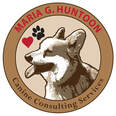A blog for all things dog-related: training, behavior, fun new doggie items, veterinary information and, of course, ways to enhance your relationship with your best four-legged friend!
0 Comments
Dr. Alisha Selzner of Companion Pet Hospital in Fishkill is dedicated to helping people understand how to work with their senior pets. “I always tell people that age is not a disease. Unfortunately, as we age and as our pets age, we start to accumulate more problems that have to be managed in order to maintain a good quality of life. Geriatric dogs can be prone to arthritis, loss of hearing, ocular conditions that lead to loss of vision, kidney failure, heart disease (leaky heart valves, thickened heart muscle, weakened heart muscle), thyroid conditions, cancerous processes, and other issues as well.” One such condition that can be common in older dogs is Geriatric Dog Vestibular Disease or Idiopathic Vestibular disease. What exactly does this mean? Dr. Selzner explains, “In general, vestibular disease is similar to vertigo in people. A dog’s balance and sense of orientation in space can be altered. Patients with vestibular disease often have a head tilt, nystagmus (abnormal horizontal eye movements), and may vomit or decline to eat due to nausea associated with dizziness. Vestibular disease can be linked with an inner or middle ear infection, or in rare circumstances can be due to a brain tumor. However, the most common form of vestibular disease in dogs is Idiopathic or Geriatric Dog Vestibular disease, which occurs in senior pets for an unknown reason.”
|
AuthorMaria Huntoon, CBCC-KA Archives
April 2020
Categories |




 RSS Feed
RSS Feed






